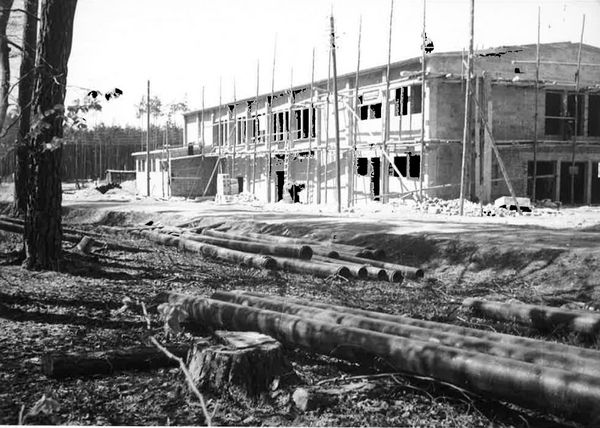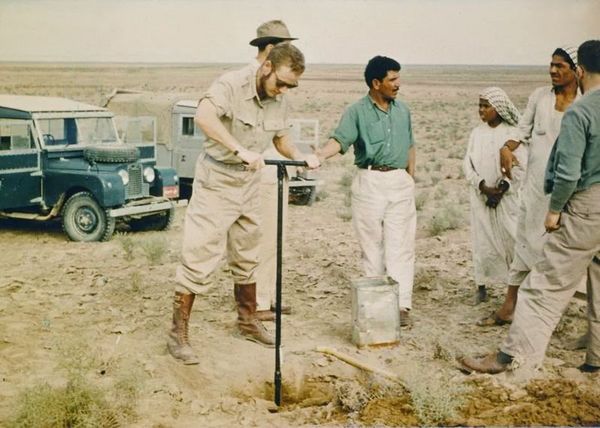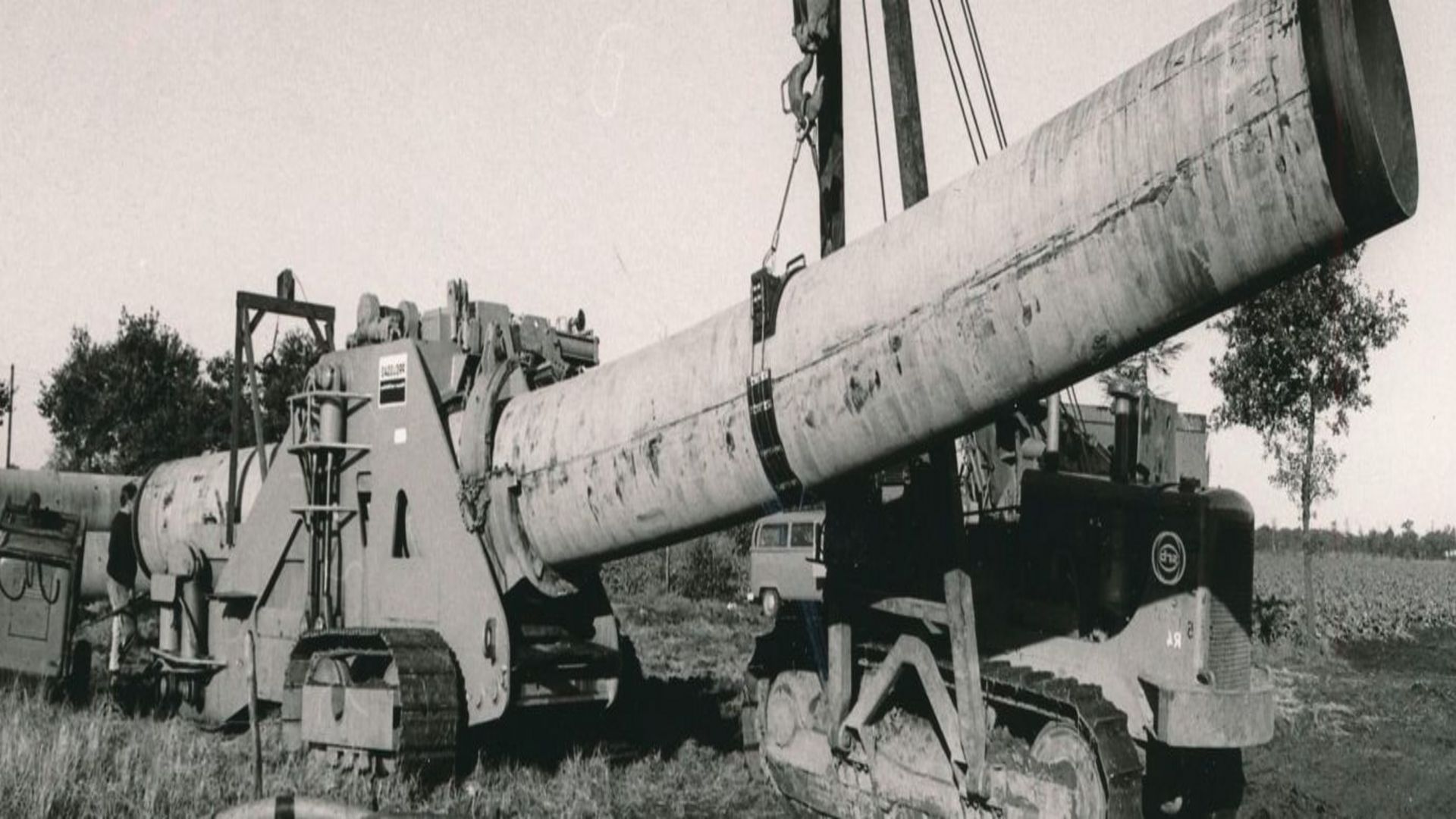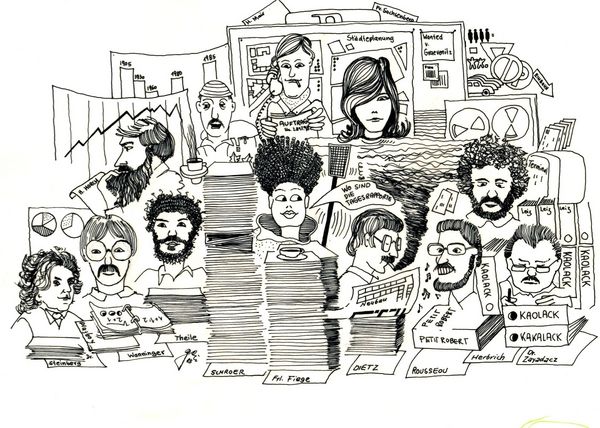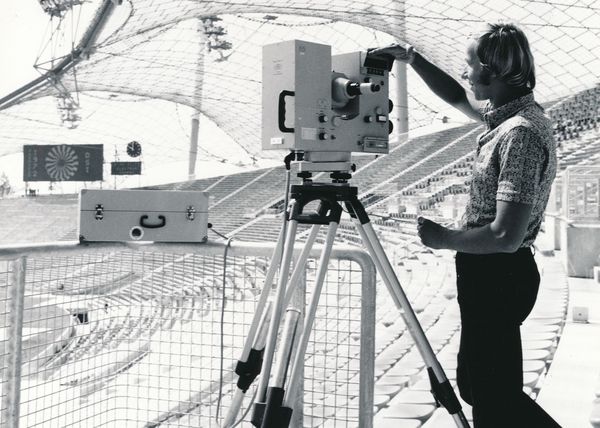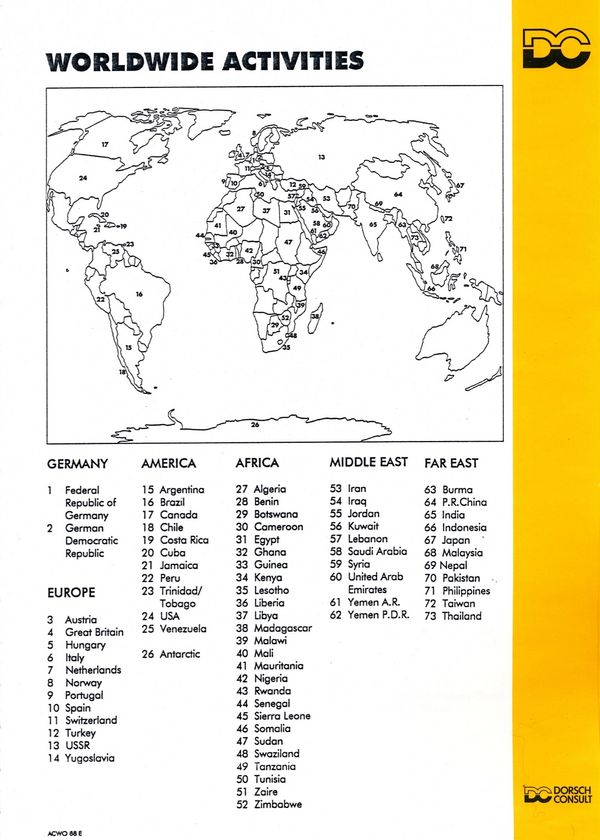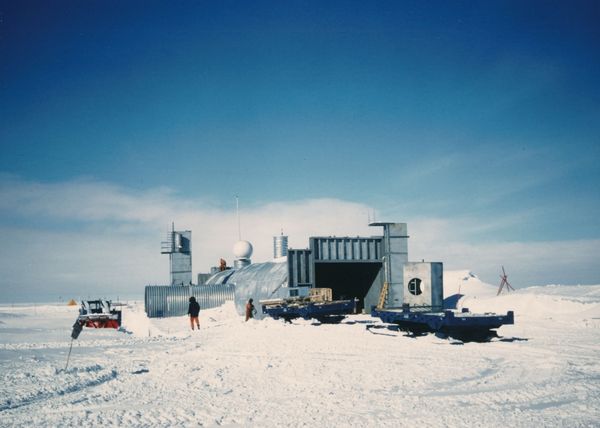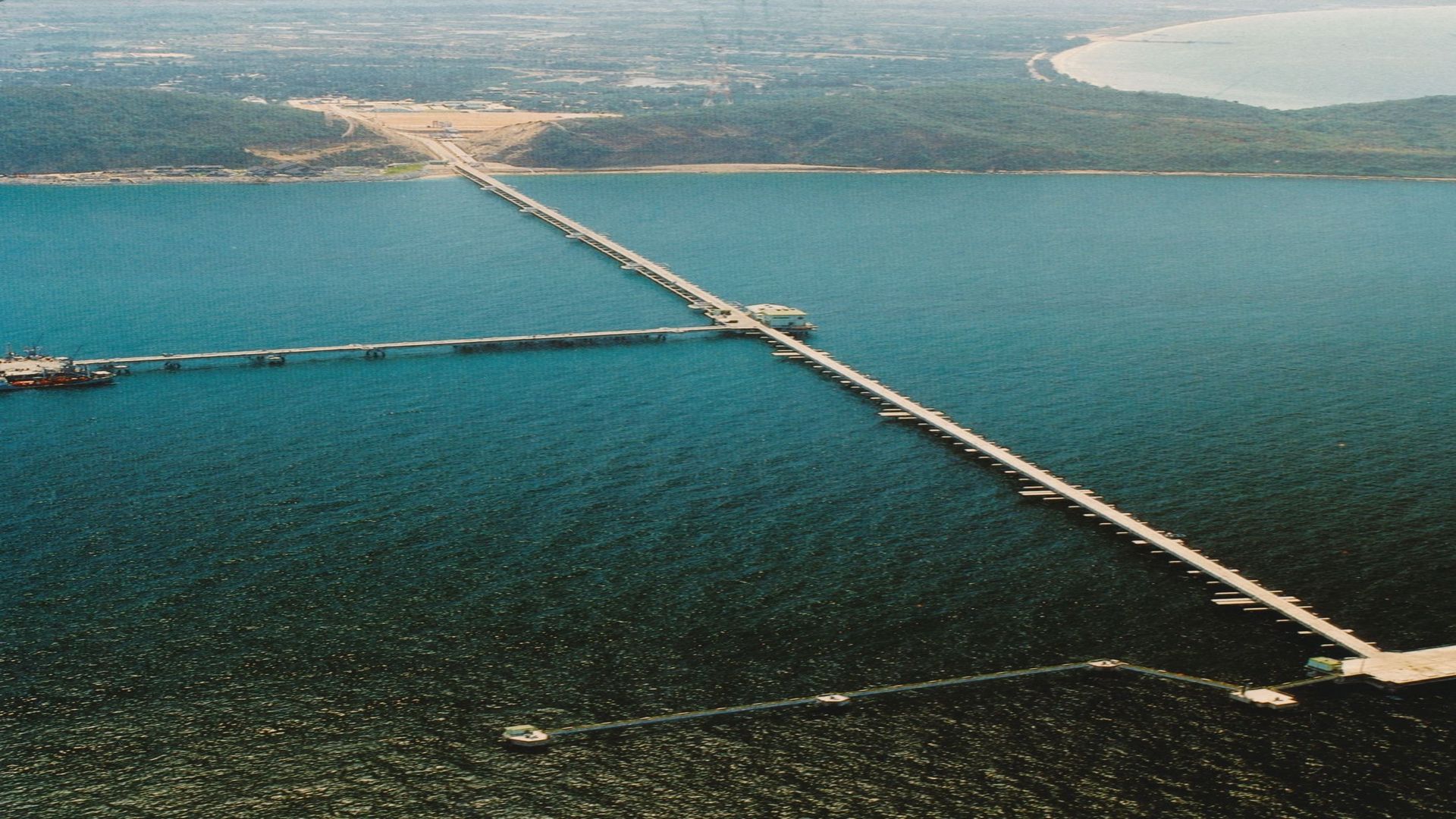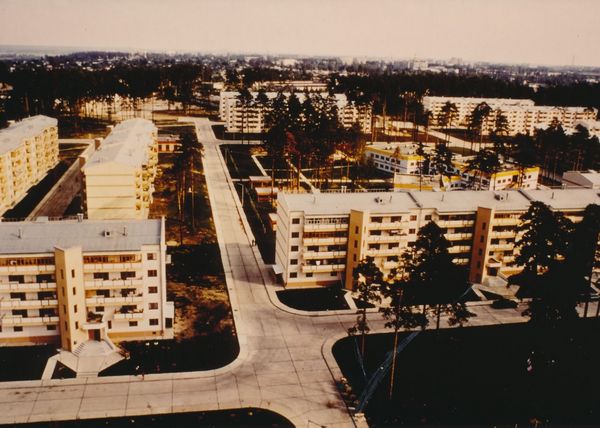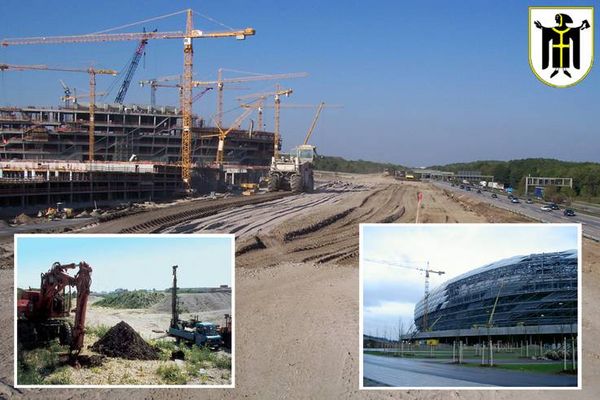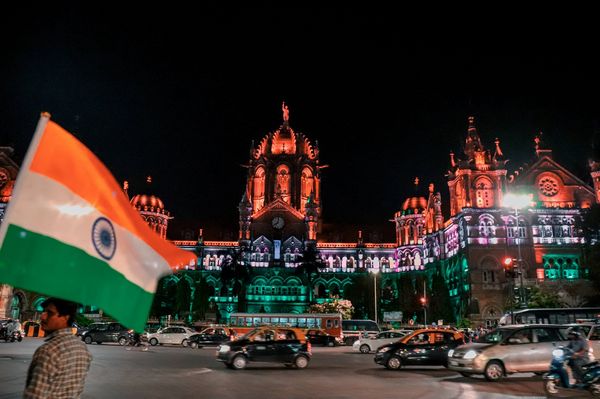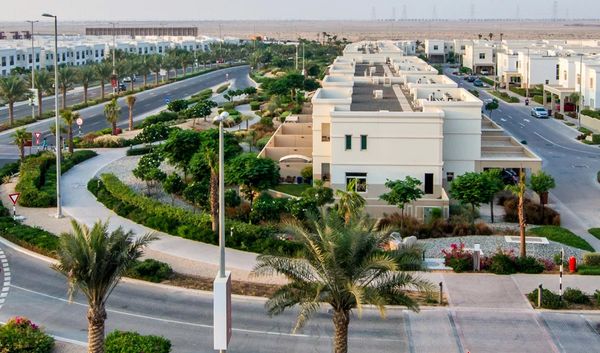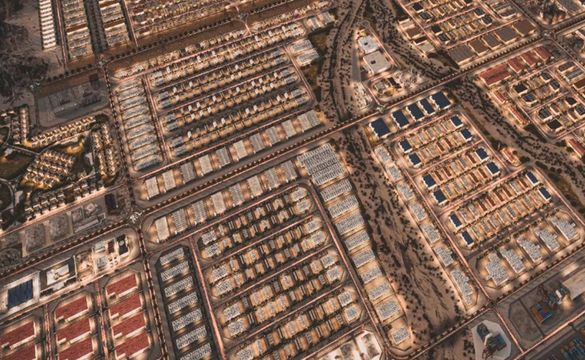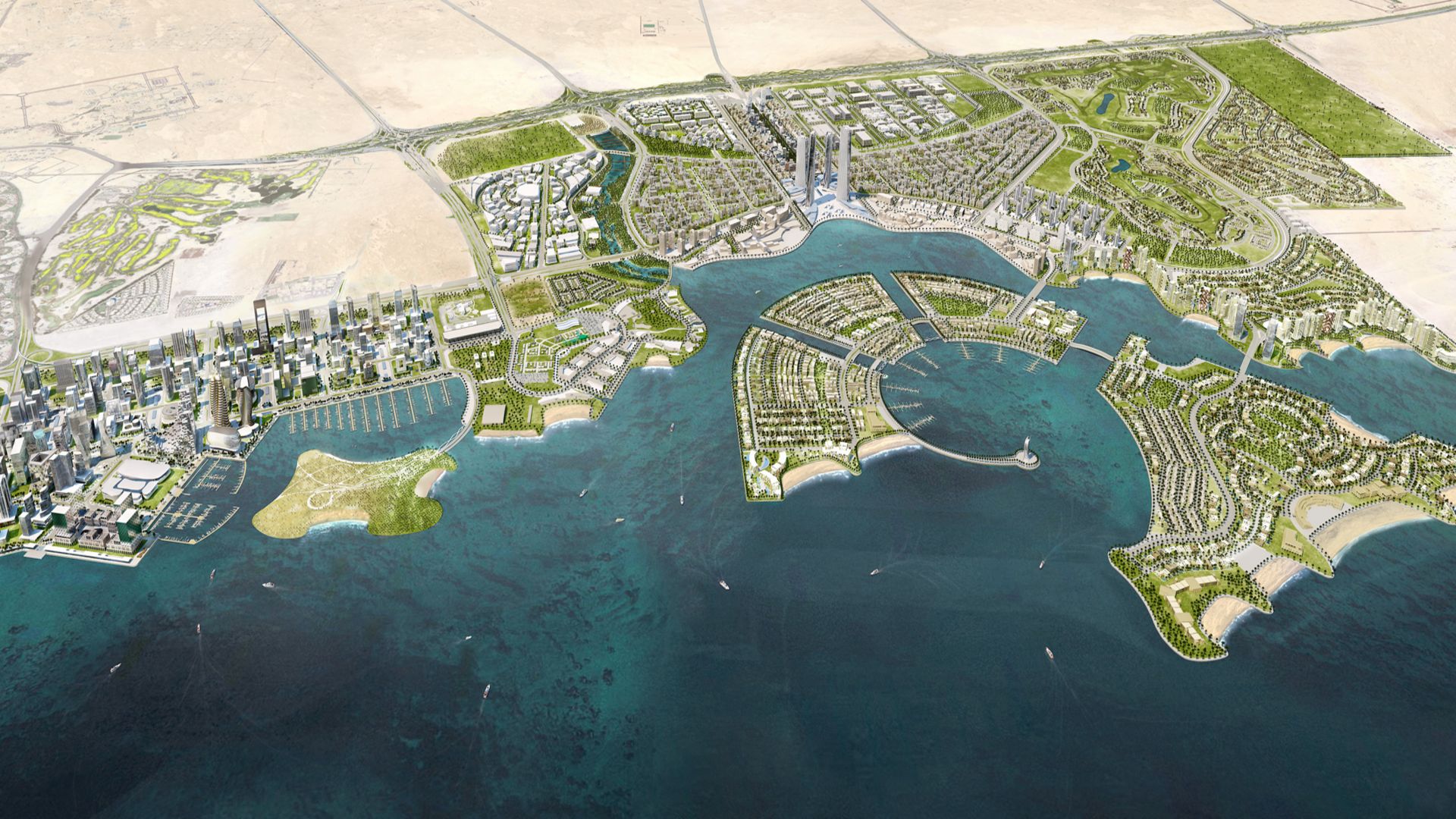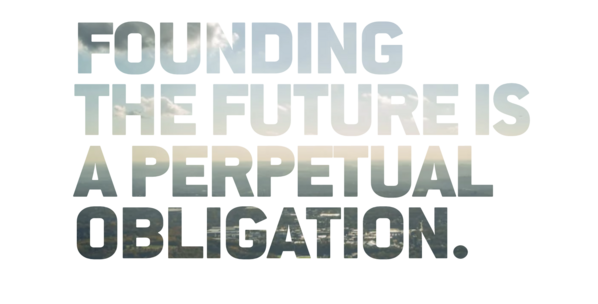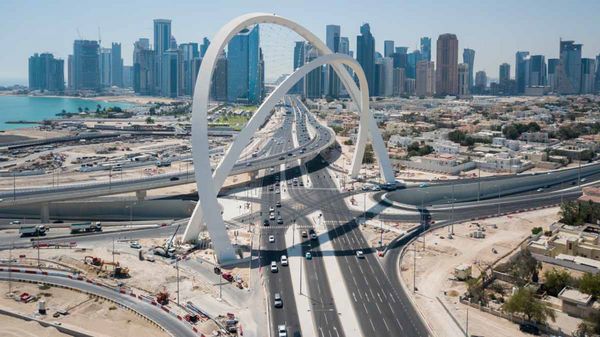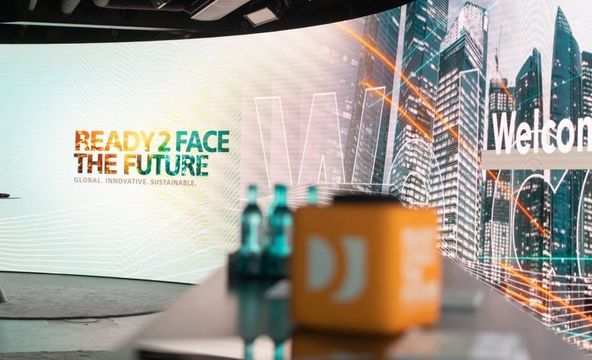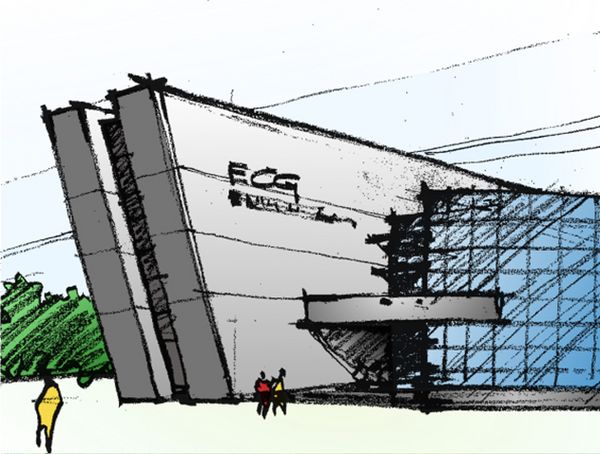Our History
1950
The beginning of an era
After the Second World War Dorsch was founded in Munich. In the autumn of 1950 Dorsch joins up with the architectural firm of Klaus Gehrmann in Kaiserslautern and becomes the largest contractor for construction projects of the U.S. troops in Germany. Dorsch-Gehrmann is involved in building the Ramstein Air Base, for example (image: works on the auditorium designed by Dorsch-Gehrmann).
1956
Dorsch goes international
The activities of the young company soon spread to other countries. Dorsch quickly accepts international contracts like this one in Iraq, where soil investigations are carried out for the construction of an expressway. International orientation is still a key characteristic of the company today.
1958
Entry into pipeline and industrial engineering
In the mid 1950s Dorsch also becomes active in the civil sector, for example for the expansion of motorways, and also with technically challenging large-scale projects such as the laying of an oil pipeline in Wilhelmshaven.
1969
An international Group
Dorsch grows rapidly in the 1960s. By the end of the decade the company has around 500 employees operating worldwide. The head office is in Munich, but local offices are often set up for large foreign projects, for instance in Beirut, Baghdad, Kuwait or Barcelona. The connecting link for all employees is the Dorsch Report which is published from 1969 on. It comes in two languages and covers the international activities of the Dorsch company – some reports are humorous as well, with their own illustrations (image: excerpt from Dorsch Report 1973).

1981
Active worldwide
The company is now active almost all over the world, but at the same time it is also vulnerable to regional political crises: when the First Gulf War between Iraq and Iran breaks out in 1980 the Iraq business comes to a complete standstill for Dorsch – large-scale projects in which the company specialises demand a stable political situation in the respective country.
1981
Whether on the equator or at the South Pole – Dorsch realises major projects everywhere
In 1981 the Dorsch project furthest from any civilisation is completed: the Georg-von-Neumayer-Station on Atka Bay. It is the first wintering station of the Federal Republic of Germany in Antarctica – made possible by Dorsch.
1985
New markets in the Far East
While some markets disappear, others gain in importance: in 1985 the first major project in Thailand is completed – the Gas Plant Project Khao Bo Ya. By the end of the decade, further gas terminals are built under Dorsch consulting and engineering services. In 1987 Dorsch sets up its own branch in Abu Dhabi – today one of the largest foreign subsidiaries.
1994
A major project for a new era
In 1990 the Communist Bloc in Eastern Europe collapses. Infrastructure and many housing estates in Eastern Europe are in a disastrous condition, the new governments bring foreign companies into their countries for support. Dorsch is awarded the contract for the construction of 45,000 apartments at 33 sites in Russia, Ukraine and Belarus.
2005
Major shake-up
With the downturn in the construction industry at the end of the 1990s Dorsch is taken over by the French Group EGIS. Key project activities during these years are practically on the doorstep, with Dorsch managing the infrastructure development for the new Allianz-Arena and the upgrade of Munich Airport. There is, however, no sustained recovery with no perspectives for long-term major projects and so, in 2005, the company is acquired and realigned by Hoffmann Röder Hochbau GmbH.
2000
Expansion into India
In 2000, the Dorsch Group bundled its complementary holdings into one strategic force. In the course of this, Dorsch India was founded. This step enabled an even more effective expansion of international activities and an extension of the company's service portfolio. In the course of this, the foundation of Dorsch Consult India, Mumbai was also pushed forward in order to establish a branch network in India.
2007 / 2008
Abu Dhabi und Asia
In 2007 and 2008, the Dorsch Group continued its expansion course and extended its branch network worldwide. In Jakarta, Indonesia, the branch network of DC Asia was expanded. In addition, Dorsch Holding DC Abu Dhabi, another location in the United Arab Emirates, was founded in the same period.
2010
Saudi Arabia and Dorsch International
In 2010, Dorsch International Consultants GmbH was founded through merger and reorganisation and was awarded the contract for the Abu Dhabi urban expansion plan Al Ghadeer. In the same year, the Dorsch Gruppe also established its first branch office in Saudi Arabia.
2012
A city in the desert
Large-scale projects, mastering extreme structural challenges as well as international orientation have always been part of the DNA of Dorsch – and with the project “Lusail City“ all of these strengths come together. This is where Dorsch is erecting an entire city in the desert. For Lusail City in the northeast of Doha, 3,500 hectares of waterfront are being turned into a city that will one day be home to around 450,000 people – including commercial and residential areas with open spaces and parks.
2016–2018
RAG-Stiftung acquires Dorsch Gruppe
From 2016 to 2018, the RAG-Stiftung acquired 100% of the shares in the Dorsch Gruppe through its holding company RSBG SE. This significant share acquisition strengthened the financial basis and long-term perspective of the Dorsch Gruppe. RAG-Stiftung bears responsibility for financing the perpetual obligations that the German hard coal mining industry has left behind, and generating the funds that are needed to fulfil these obligations. In addition, they promote projects in the areas of education, science and culture in order to support the transformation of the former mining regions.
2020
The biggest contract in the company’s history
Qatar is booming, but it also faces major challenges. The aim is to lead the country into a post-oil future. To this end, infrastructure is being expanded and modernised. Ports, schools, health, sports and leisure facilities and public amenities are being built. The obvious partner for all of these tasks is Dorsch. This is the biggest contract in the company’s history.
2020–2022
7 companies join the Dorsch Gruppe
In 2020, the Dorsch Gruppe continued its expansion course. In the course of this, several companies became part of the Dorsch Gruppe. These included AMBERO Consulting Gesellschaft mbH, GRE German Rail Engineering GmbH, PB CONSULT Planungs- und Betriebsberatungsgesellschaft mbH and spiekermann ingenieure gmbh. In 2021, the KREBS+KIEFER Group and AHT Group GmbH followed, and in 2022 BLS Energieplan GmbH.
2023
Largest growth in the company's history
Acquisition of ECG Engineering Consultants Group S.A.E., headquartered in Cairo. With an impressive total construction volume of over US$200 billion and over 50 years of experience, ECG operates in the Middle East, Africa and Europe regions, offering a wide range of services including architecture, civil engineering, electrical engineering and urban development. The group has a strong team of over 3,000 experts.
Historical Responsibility
Dorsch Today and our Historical Responsibility
Dorsch ceased being a family-owned business over 25 years ago, but the company continues to bear the name of its founder, despite its sale and changes in ownership. We are aware of the historical connection to Franz Xaver Dorsch, who played a significant role in the German Nazi regime during the Second World War. Although research on Franz Xaver Dorsch is still at an early stage on the whole, some facts are clear and we fully understand the importance of recognising our responsibilities.
We take this responsibility very seriously and explicitly distance ourselves from Franz Xaver Dorsch.
Today, the Dorsch Global clearly stands for respect, transparency, responsibility, reliability and integrity. These values are expressed in our Compliance Guidelines,, which are binding on all our employees, as well as in our Code of Conduct, and they are also reflected in our international diversity which is lived at all locations of our companies.
